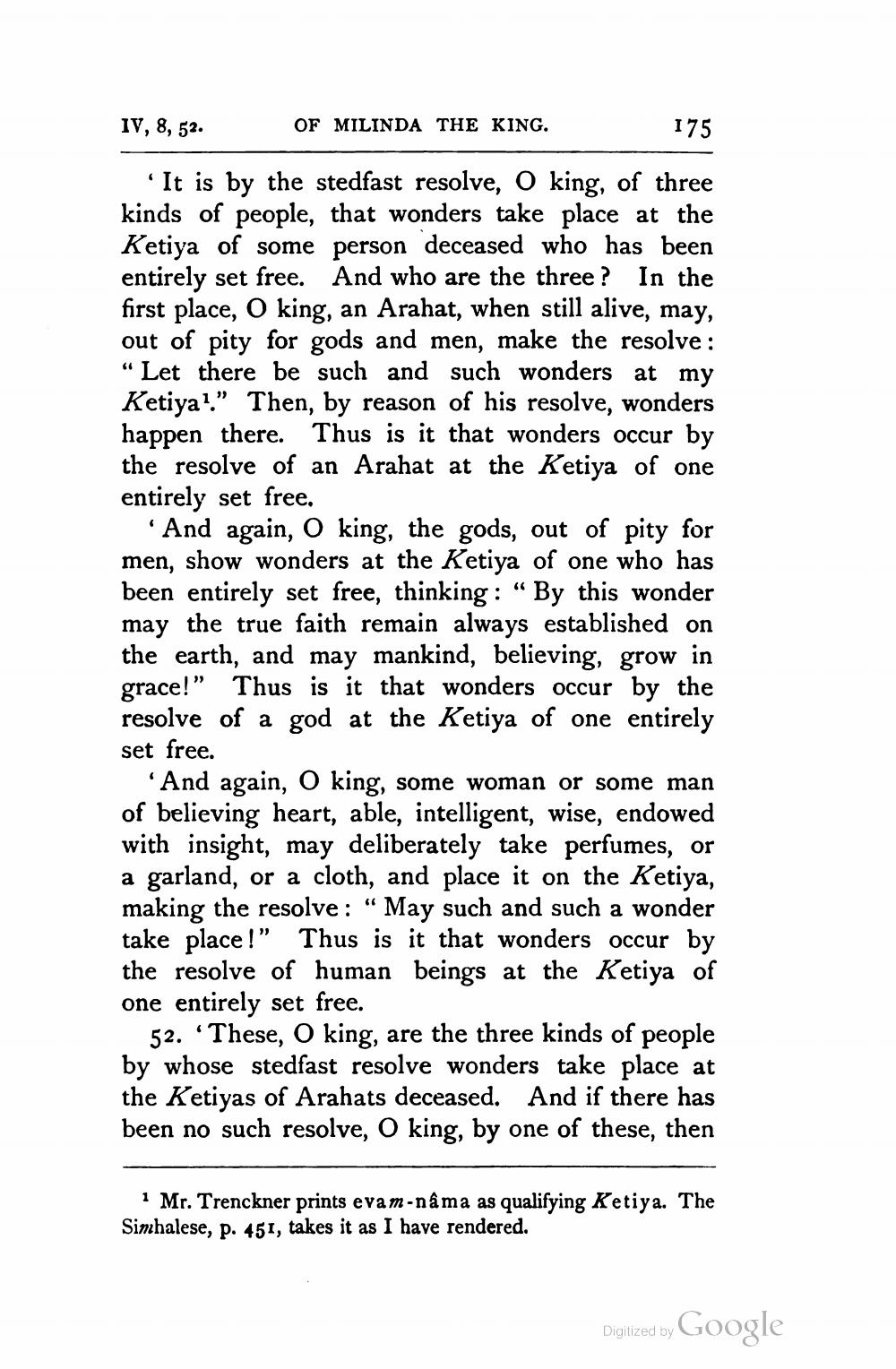________________
IV, 8, 52.
OF MILINDA THE KING.
175
'It is by the stedfast resolve, O king, of three kinds of people, that wonders take place at the Ketiya of some person deceased who has been entirely set free. And who are the three ? In the first place, O king, an Arahat, when still alive, may, out of pity for gods and men, make the resolve: “Let there be such and such wonders at my Ketiya?.” Then, by reason of his resolve, wonders happen there. Thus is it that wonders occur by the resolve of an Arahat at the Ketiya of one entirely set free.
And again, O king, the gods, out of pity for men, show wonders at the Ketiya of one who has been entirely set free, thinking : " By this wonder may the true faith remain always established on the earth, and may mankind, believing, grow in grace!" Thus is it that wonders occur by the resolve of a god at the Ketiya of one entirely set free.
And again, O king, some woman or some man of believing heart, able, intelligent, wise, endowed with insight, may deliberately take perfumes, or a garland, or a cloth, and place it on the Ketiya, making the resolve: “May such and such a wonder take place!” Thus is it that wonders occur by the resolve of human beings at the Ketiya of one entirely set free.
52. 'These, O king, are the three kinds of people by whose stedfast resolve wonders take place at the Ketiyas of Arahats deceased. And if there has been no such resolve, O king, by one of these, then
* Mr. Trenckner prints evam-nama as qualifying Ketiya. The Simhalese, p. 451, takes it as I have rendered.
Digitized by Google




